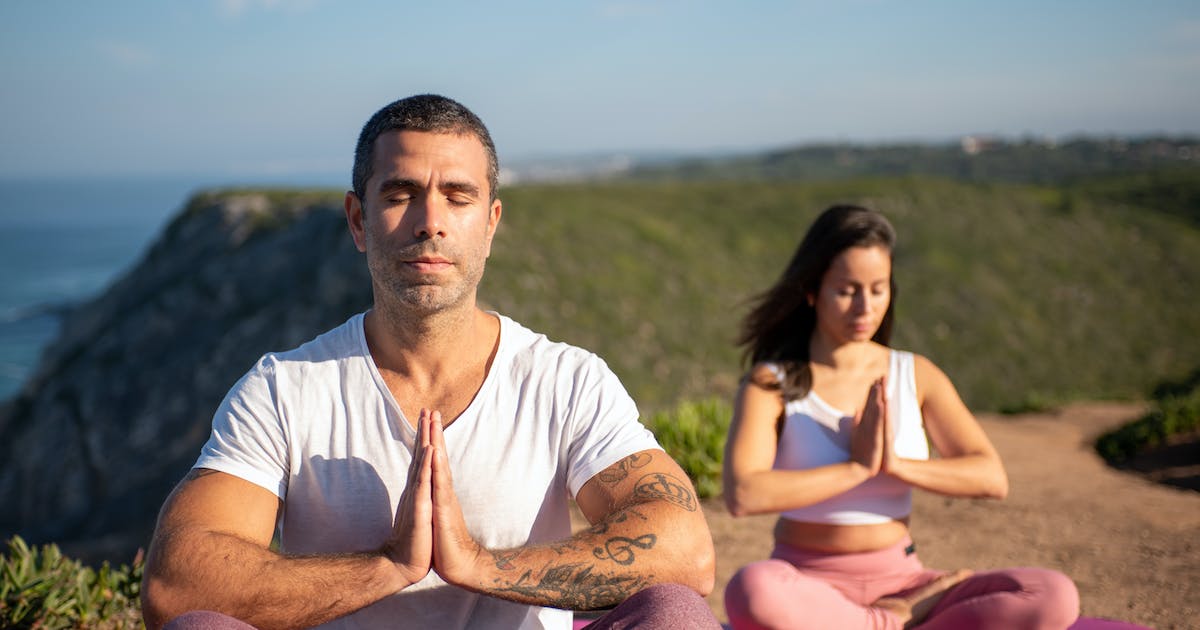Mental health problems and substance use disorders sometimes occur together. More than one in four adults living with a serious mental health condition also has a substance use problem. Substance use occurs more frequently with some mental health problems than others, such as depression, anxiety, personality disorder and schizophrenia.
Mental health problems and substance use disorders are related for a number of reasons. They include genetic vulnerabilities, changes in brain composition and early exposure to stress or trauma. Most commonly, though, it appears that individuals experiencing mental health symptoms attempt to self-medicate with drugs or alcohol. This can end up creating a cycle of dependence.
Learning new ways to cope with stress and negative feelings is an important part of the recovery process. Many individuals benefit from yoga, a practice that brings harmony between the mind and body. Below are some of the ways that yoga can help you transform your mental health.
Reduce Daily Stress
In today's fast-paced world, stress has become a pervasive and often debilitating presence in many people's lives. Fortunately, yoga offers a powerful antidote to stress, helping to soothe the nervous system and promote relaxation.
Through gentle movements, controlled breathing and mindfulness practices, yoga releases tension in the body and quiets the mind. Studies have shown that regular yoga practice can lower levels of cortisol, the stress hormone, leading to reduced anxiety and a greater sense of calm.
Mindfulness and Presence
At the heart of yoga lies the practice of mindfulness. Mindfulness refers to being fully present in the moment without judgment. Through mindful movement and breath awareness, yoga cultivates a heightened sense of awareness and connection to the present moment.
By turning inward and tuning into the sensations of your body, you can learn to quiet chatter in the mind and anchor yourself in the here and now. This newfound sense of presence can be profoundly liberating, offering an escape from worries about the past or anxieties about the future.
Emotional Regulation
Yoga provides a safe and supportive space for exploring and processing emotions. The practice encourages you to approach your feelings with compassion and non-judgment, fostering greater emotional resilience and self-awareness.
Through gentle movement, breathwork and meditation, yoga can help you cultivate a sense of inner balance and equanimity, enabling you to navigate life's ups and downs with greater grace and poise. Moreover, yoga teaches valuable coping skills that can be applied off the mat.
Connection and Community
One of the most beautiful aspects of yoga is its ability to foster a sense of connection and community. Whether practicing in a studio, at a retreat or in the comfort of one's own home, yoga brings people together in a spirit of unity and shared purpose.
This sense of belonging can be incredibly nourishing for mental health, offering support, encouragement and a sense of togetherness. Additionally, yoga provides an opportunity to connect with something greater than oneself – whether it's the natural world, a higher power or the collective energy of the universe – fostering a sense of interconnectedness and belonging.
Yoga Therapy for Mental Health
The world can be a stressful place, especially when you’re experiencing mental health symptoms. But rather than turning to substances like drugs or alcohol, you can turn to something much safer and more productive - yoga therapy. Yoga provides a holistic approach to mental health that can transform lives, which is why we offer this practice at Recovery Cove.
Since we work with individuals who are experiencing mental health and substance use problems, we aim to help them develop coping strategies that serve them well. Even those who are resistant toward yoga often end up enjoying it, as they find it supports their mental and physical health.
To learn more about the holistic therapies offered at Recovery Cove, contact our team today at 484-549-COVE or fill out our contact form and someone will contact you.




